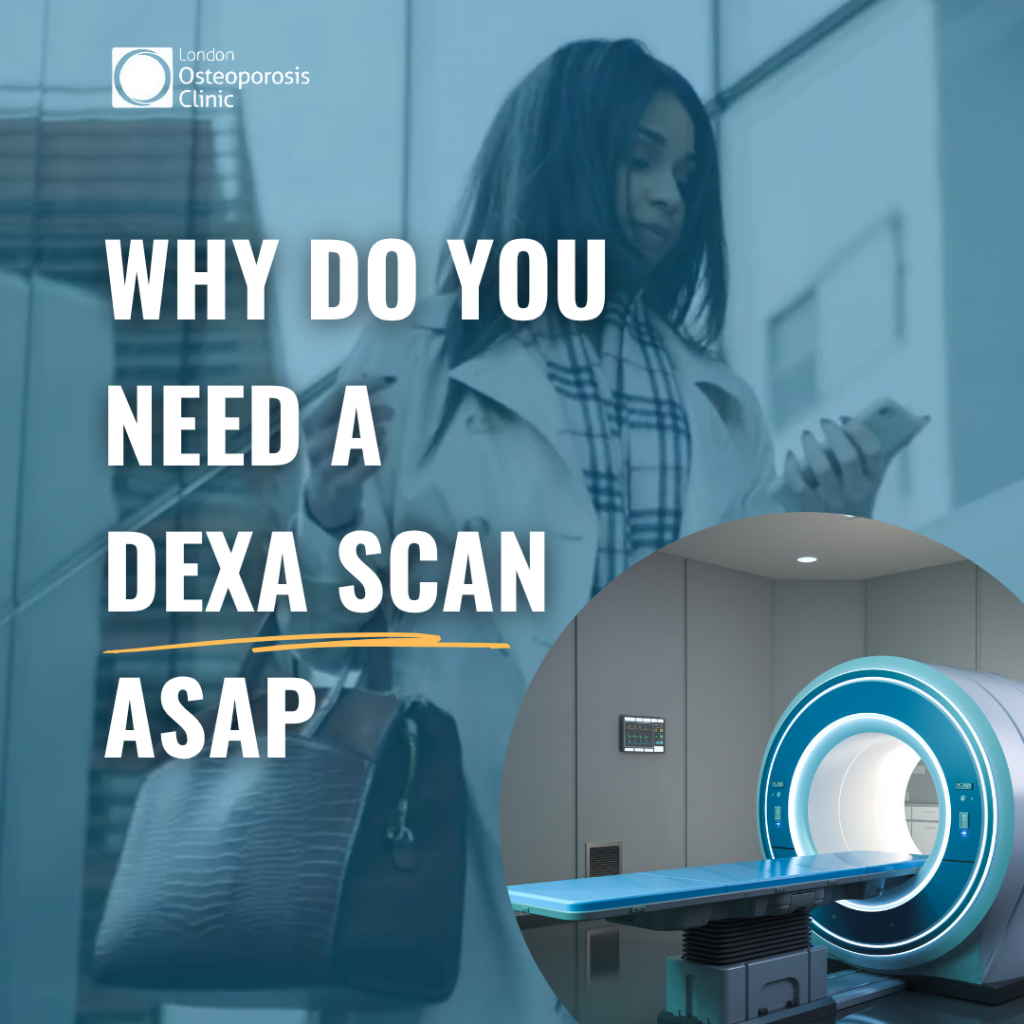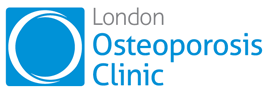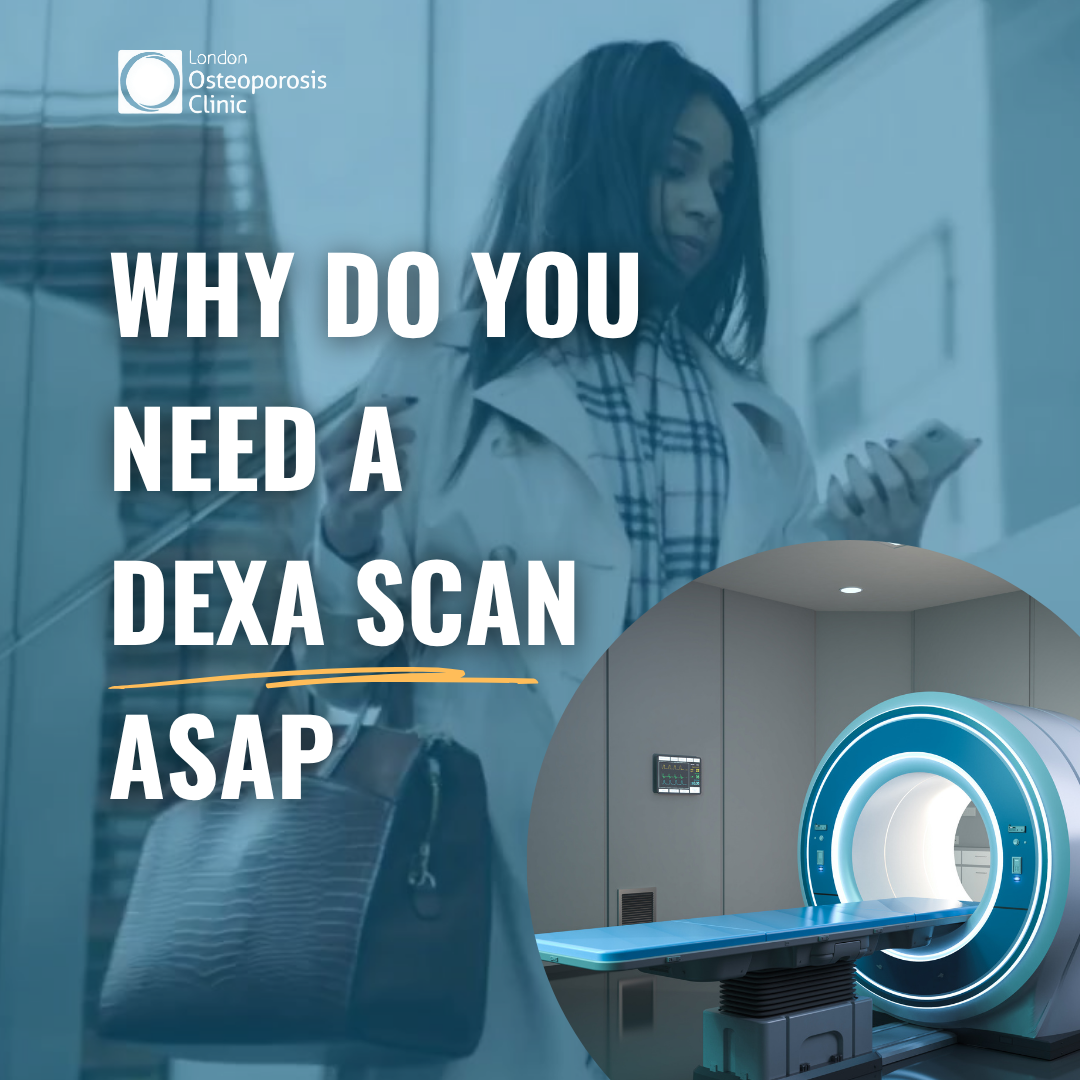Ever wonder how strong your bones really are?
You might be walking around with thinning bones and not even know it — until a sudden fracture wakes you up to the reality of osteoporosis. That’s where a DEXA scan comes in. This simple, painless test is the gold standard for measuring your bone mineral density (BMD) and detecting signs of osteopenia or osteoporosis early — when prevention still works.
At London Osteoporosis Clinic, we use DEXA scans every day to help people understand and manage their bone health — long before a break happens.
What Is a DEXA Scan?

DEXA (short for Dual-Energy X-ray Absorptiometry) is a specialized type of scan that uses low-dose X-rays to measure how much calcium and other minerals are in your bones.
It is primarily used to assess the strength of your bones and your risk of fracture, especially in areas like your:
- Lower spine
- Hip
- Wrist (in some cases)
Unlike regular X-rays, a DEXA scan provides a precise measurement of bone density and can detect even minor losses — often before symptoms appear.
Why Is It Important?
Bone loss is silent. You don’t feel your bones weakening. That’s why early screening is so important. A DEXA scan can:
- Diagnose osteopenia or osteoporosis
- Estimate your risk of fractures
- Track bone density over time
- Monitor the effectiveness of osteoporosis treatment
The test is quick, painless, and highly predictive — especially when combined with clinical evaluation.
Who Should Get a DEXA Scan?
You may benefit from a DEXA scan if you:
- Are a woman aged 45+ or postmenopausal; any age adult if clinical risk factors for bone loss/ fracture history
- Have a family history of osteoporosis
- Use steroids, thyroid, or hormone medications long term
- Have experienced unexplained fractures
- Are underweight or have eating disorders
- Have gut absorption issues like coeliac or Crohn’s disease
- Are a man over 60 years old
Even if you’re younger, a scan may be recommended if you have risk factors. Speak to your doctor.
What Happens During the Test?
- You lie fully clothed on a padded table
- A scanner arm slowly moves over your lower spine and hips
- The test takes 10–15 minutes
- No injections, no pain, and no need to fast
You’ll get a T-score and Z-score, which compare your bone density to a healthy young adult and to others your age, respectively.
How to Prepare for a DEXA Scan
Preparation is minimal, but for best results:
- Avoid taking calcium supplements 24 hours before the test
- Wear clothes without zippers or metal buttons
- Bring a list of any medications you take
Let the technician know if you’ve had recent contrast imaging (like a barium X-ray).
What Your Results Mean
T-score values:
- +1 to –1: Normal bone density
- –1 to –2.5: Osteopenia (low bone mass)
- Below –2.5: Osteoporosis
Your rheumatologist or bone health specialist will explain what this means for you — and how to move forward with prevention or treatment.
Why Book Your Scan at London Osteoporosis Clinic?
- 💡 Specialists in bone and metabolic health
- 🩺 Consultant-led, expert interpretation
- ⚙️ State-of-the-art scanning technology
- 📍 Convenient location at HCA The Shard, London
Whether you’re looking to prevent your first fracture or manage a known risk, we’re here to support you with evidence-based, personalised care.
📞 Ready to Check Your Bone Strength?
Don’t wait for a break to find out your bones are at risk.
Book your DEXA scan today at London Osteoporosis Clinic:
📍 HCA The Shard, 32 St Thomas Street, London SE1 9BS
📞 +44 (0)20 7193 7867
🌐 www.londonosteoporosisclinic.com
Written by Dr. Taher Mahmud, Consultant Rheumatologist & Co-Founder, London Osteoporosis Clinic


